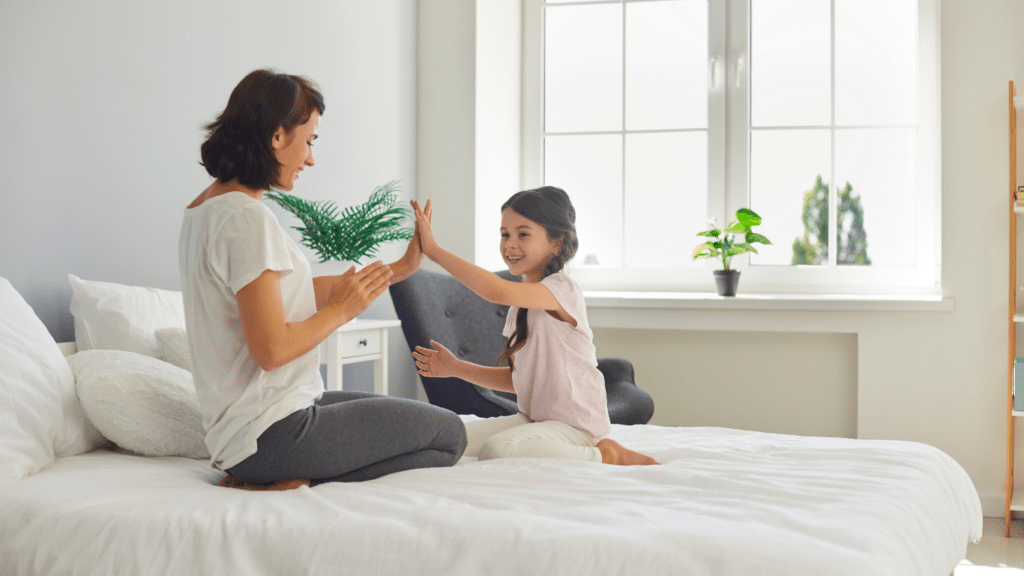Today’s parents juggle a lot—career, family, social expectations, and health concerns. With so much on their plates, it’s easy to overlook the small decisions that lead to long-term well-being. That’s where resources like https://fparentips.com/health-guide-fparentips/ step in. A strong https://fparentips.com/health-guide-fparentips/ delivers useful insight into everyday habits, mental health tips, and nutritional know-how, making healthy living more manageable for busy families. That’s exactly what the health guide fparentips aims to do—clear the noise and help parents make better, easier choices.
Why Parental Health Matters More Than Ever
We often hear “put your own oxygen mask on first”—and it applies perfectly to parenting. If you’re constantly stressed, sleep-deprived, or living on ultra-processed meals, those habits ripple out to your kids. The health guide fparentips emphasizes sustainable, real-world choices because it understands modern parenthood isn’t about perfection—it’s about balance.
The pressure to maintain glowing health (for adults and kids) can become overwhelming. Instead of drilling strict rules, a good guide leans into doable steps. Want to fit in ten minutes of stretching before breakfast? Great start. Ditch the guilt trip if you’re not doing hour-long workouts or cooking all-organic meals. Less pressure means more consistency—and that’s the long-term win.
Key Health Priorities for Families Today
Across cultures and parenting styles, a few wellness priorities show up consistently. The health guide fparentips focuses on these pillars because small wins here make a big impact:
1. Nutrition that Thinks Long-Term
Balanced meals don’t have to mean gourmet. Think less about perfection, more about patterns. This means aiming for whole foods most of the time, adding vegetables without turning it into a war, and cutting the sugar quietly instead of announcing it to the whole house.
Hydration matters too—especially with kids who might confuse thirst with hunger. Encouraging more water (and easing off the juice) makes a noticeable difference.
2. Movement Without Pressure
Many parents struggle to squeeze in workouts. But movement doesn’t need a gym membership. The health guide fparentips recommends integrating activity into daily life: bike rides, evening walks, or 5-minute dance breaks. When it’s easy and fun, families stick with it.
3. Mental Health Is Family Health
Stress doesn’t stick to one person. Kids pick it up fast—even if they can’t name it. That’s why prioritizing mental well-being is non-negotiable. Strategies like screen-free meals, short mindfulness exercises, or family journaling help everyone stay emotionally grounded.
Also, teaching emotional vocabulary early helps children feel safe and understood, which leads to better behavior, communication, and resilience.
Resetting Screen Time Standards
The digital age isn’t going anywhere, but that doesn’t mean we give in completely. Managing screen time is tricky, but essential. Instead of banning devices altogether, the health guide fparentips suggests resetting what tech time looks like. Think co-watching shows together, using educational apps, or setting “no phones during X hours” zones.
Even adults benefit from screen boundaries. That quick evening scroll often leads to disrupted sleep and lower energy the next day. Start small—a no-phone zone during dinner helps everyone reconnect face-to-face.
Sleep: The Infrastructure of Wellness
Sleep is ground zero for good health, especially for children still growing. An overtired kid becomes more irritable, less focused, and more susceptible to illness. Adults aren’t immune either—poor sleep raises risks of heart disease, depression, and even weight gain.
So what does the health guide fparentips recommend? Prioritize consistent bedtimes, limit screen use an hour before sleep, and create a calming evening routine for you and the kids. That one habit alone can shift the feel of the entire household.
Sustainable Routines vs. Health Overhauls
The biggest pitfall for many parents is going from 0 to 100. One moment, they’re surviving on coffee and frozen meals; the next, they’ve committed to five-week meal plans, juice cleanses, and 6 a.m. runs. That’s a recipe for burnout.
The health guide fparentips emphasizes small, sustainable changes. Instead of rewriting your entire lifestyle, try things like:
- Adding one vegetable per day to family meals
- Instating a “10-minute tidy” before bed to improve sleep environment
- Swapping one sugary snack with nuts, fruit, or whole-grain options
- Scheduling a 15-minute family walk twice a week
Tiny habits grow into big changes—if you let them stick.
Recognizing Individual Family Needs
No two families are alike. Some parents have toddlers and teens under the same roof. Some have zero help. Some manage food allergies, special needs, night shifts, or tight budgets. That’s why any serious health guide has to be flexible.
The health guide fparentips stands out by offering broad frameworks instead of rigid formulas. It offers directional advice—highlighting priorities rather than strict rules. The idea isn’t to “do it all,” but to “do what works,” consistently and with compassion.
Where to Start: Simple First Steps
If tackling your family’s health feels overwhelming, start where you are. Look at one category—maybe it’s sleep, maybe sugar, maybe screen time—and pick a small step. Try it for a week. Make it effortless to win.
Over time, stack those wins. If dinner becomes more vegetable-forward, awesome. If your teenager starts going to bed 15 minutes earlier, progress. This isn’t about revolution; it’s about evolution.
In short, the health guide fparentips reminds us that we don’t need perfect conditions to raise thriving families—just clear direction, small wins, and consistency over time.


 Jameslee Silverayees – Founder Jameslee Silverayees is the founder and driving force behind Makes Parenting Watch, a comprehensive platform designed to support parents at every stage of their journey. As a parent himself, Jameslee recognized the overwhelming amount of information available and the need for a trusted source that offers practical, expert-backed advice. Drawing on his own experiences and his passion for family well-being, he created Makes Parenting Watch to be a one-stop resource for news, updates, and tips on everything from newborn care to family travel. Under his leadership, the website has grown into a highly respected community of parents, caregivers, and experts who come together to share insights and solutions. Jameslee is deeply committed to empowering families with the knowledge they need to raise healthy, happy children while fostering stronger family bonds.
Jameslee Silverayees – Founder Jameslee Silverayees is the founder and driving force behind Makes Parenting Watch, a comprehensive platform designed to support parents at every stage of their journey. As a parent himself, Jameslee recognized the overwhelming amount of information available and the need for a trusted source that offers practical, expert-backed advice. Drawing on his own experiences and his passion for family well-being, he created Makes Parenting Watch to be a one-stop resource for news, updates, and tips on everything from newborn care to family travel. Under his leadership, the website has grown into a highly respected community of parents, caregivers, and experts who come together to share insights and solutions. Jameslee is deeply committed to empowering families with the knowledge they need to raise healthy, happy children while fostering stronger family bonds.
